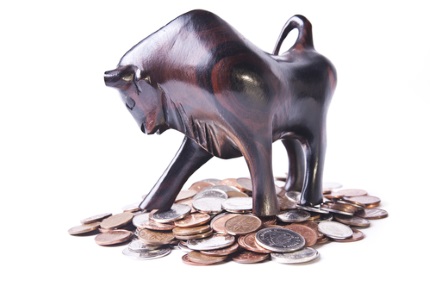Everyone loves to play the prediction game.
I like to play what is cheap, especially when looking at the world markets. Cheap markets tend to bounce and recover, especially if there is rule of law and a government that does not despise free markets and capitalism.
Most of the countries that are cheap are going to be ugly. We are talking dictators, excessive fossil fuel usage, occasional violence, a cavalier attitude toward the well-being of the population, and—often—an intense dislike for the United States.
Ugly, but potentially very profitable. Today I have three plays like this for you, from a country you’ll never guess…

Turkey is currently the cheapest market that can be traded easily via exchange-traded funds. The iShares Turkey ETF trades with the symbol EUR. It is not as heavily traded as the SPY, but it will do just fine for our purposes.
Most of the countries that are cheap are going to be ugly. We are talking dictators, excessive fossil fuel usage, occasional violence, a cavalier attitude toward the well-being of the population, and—often—an intense dislike for the United States.
Turkey was once a good friend of the United States; however, that is not exactly the case today.
The country still a member of NATO but its government is not a huge fan of our politics in the Middle East. It does not help that we are on opposite sides of the conflict in Syria and recently accidentally shot down a Turkish drone. And Turkey’s president, Recep Tayyip Erdoğan, has blamed the United States for interfering in the conflict between Israel and Hamas and somehow preventing a ceasefire, which is not helping relations, either.
The Turkish economy is a bit of a mess. The country’s central bank recently upped interest rates to over 40% to fight inflation.
Turkish Central Bank Governor Hafize Gaye Erkan did tell investors in New York last week that the country was near the end of the tightening cycle. In the global market’s edition of a corporate roadshow, Turkey hosted an investor event at JP Morgan Headquarters in New York City to convince international investors that their nation was on the right track and they should consider returning to the market.
The Turkish markets trade with a price-to-earnings ratio of 5, so they may have a point. The 10-year average P/E ratio of Turkish markets is 13, so a rally back to normal would involve the market almost tripling from current levels.
It is worth noting that Monish Pabrai, a noted value investor with a reputation for making large concentrated bets on undervalued stocks, has been buying Turkish companies. A little light sleuthing turned up a few that can be purchased here in the United States without capturing the attention of federal officials.
The first is a company where Pabrai is the largest shareholder and has already seen a massive return on his investment: Reysas Lojistik (RYSKF), which owns warehouses and transportation assets in Turkey, as well as auto carriers, railroad containers, Petroleum and LNG trucks, and import/export services. The stock currently trades for just nine times earnings. According to comments Pabrai made late last year, the company trades for far less than the liquidation.
Pabrai also owns TAV Havalimanlari Holding A.S. (TAVHY), which builds and manages airport terminals. HAV currently operates terminals in Turkey, Kazakhstan, Georgia, Qatar, Macedonia, Macedonia, Latvia, Croatia, Tunisia, Oman, Saudi Arabia, and Spain. The stock is trading for just eight times earnings and should have solid long-term growth.
Neither of these are extremely liquid, so use limit orders and only buy them if you do not feel the need for instant liquidity.
The other go-to plays in emerging markets have always been the breweries and Coca-Cola bottlers. Anadolu Efes Biracilik ve Malt Sanayii Anonim Sirketi (AEBZY), which has breweries in Turkey and breweries and Coca-Cola bottling facilities in several emerging markets, does both.
Turkish stocks are not for everyone. Turkey has a strongman president who does not necessarily like the United States very much. It borders Syria, which seems to be perpetually at war. Inflation has proven to be very difficult to tame. Interest rates are among the highest in the world. The markets are volatile and illiquid.
To some, that is a reason to stay away.
To me, it is a call to arms.
A small position in Turkish markets could easily triple over the next few years.
Last week’s trip to New York was an admission by the Turkish government that they need Western investment and will take steps to convince investors to return to Turkish markets. These steps should help the economy be less volatile and dramatically increase the markets over time.
Financial Adviser Reveals “Secret Map” He’s Using to Retire His Family
The last time such a rare situation happened with this “secret map” was in 1984. When one stock skyrocketed for all-time gains, that resulted in $5,000 turning into $108,850… and $25,000 into $544,250! Now it’s even bigger. Click here before it's too late.





